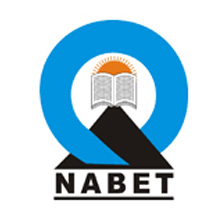Who can implement ISO 9001:2015 standard
ISO 9001:2015 is a widely recognized international standard for quality management systems. It's
applicable to a diverse range of organizations, regardless of their size, industry, or the nature of their
products and services. Whether you're a manufacturing company, service provider, non-profit
organization, or government agency, you can implement ISO 9001:2015.
Many organizations pursue ISO 9001 certification to demonstrate their commitment to quality and to enhance customer satisfaction. The standard provides a framework for establishing,
implementing, maintaining, and continually improving a quality management system.
So, in short, any organization that wants to enhance its quality management processes and meet the requirements of ISO 9001:2015 can implement the standard.
Advantages of completing the ISO 9001 Awareness course from COAE
 COAE has the relevant expertise in this sector
COAE has the relevant expertise in this sector Globally recognized certificates are issued
Globally recognized certificates are issued
 Course content has been designed & developed by international experts and industry representatives
Course content has been designed & developed by international experts and industry representatives
 Certified delegates will demonstrate that they have the best capabilities and competencies to audit client organizations as per global best practices
Certified delegates will demonstrate that they have the best capabilities and competencies to audit client organizations as per global best practices
 Most relevant examples from all sector and live case studies are used for training
Most relevant examples from all sector and live case studies are used for training
 Focus on knowledge, understanding and skill development of participants
Focus on knowledge, understanding and skill development of participants
 Effective communication with international experts during the sessions
Effective communication with international experts during the sessions Opportunities for peer interactions and real-time feedback from trainers
Opportunities for peer interactions and real-time feedback from trainers Highly interactive live training sessions
Highly interactive live training sessions COAE training certifications lead to better career opportunities
COAE training certifications lead to better career opportunities
Benefits
- Improved Understanding of Quality Principles: Employees gain a clear understanding of the
principles, policies, and practices related to quality within the organization. This knowledge
helps align individual tasks with overarching quality objectives.
- Enhanced Employee Engagement: Employees who understand the importance of their roles
in maintaining and improving quality are more likely to feel engaged and motivated.
Awareness training creates a sense of ownership and responsibility for the quality of
products or services.
- Consistent Application of QMS Practices: With a shared understanding of QMS practices,
employees are more likely to consistently apply these practices in their daily work. This leads
to a standardized and efficient approach to quality management across the organization.
- Reduction in Errors and Defects: Awareness training equips employees with the knowledge
to identify and address potential quality issues before they escalate. This proactive approach
can lead to a reduction in errors, defects, and non-conformities.
- Compliance with Standards: Organizations often implement QMS based on international
standards such as ISO 9001. QMS Awareness Training ensures that employees are familiar
with these standards, promoting compliance and making certification processes smoother.
- Increased Customer Satisfaction: Employees who understand customer needs and the
importance of meeting or exceeding expectations contribute to higher customer
satisfaction. Satisfied customers are more likely to be loyal and provide positive feedback.
- Effective Risk Management: Awareness training often includes education on risk-based
thinking. Employees learn to identify and manage risks in their processes, contributing to a
more proactive approach to risk management within the organization.
- Alignment with Organizational Goals: QMS Awareness Training helps align individual and
departmental goals with the overall organizational goals related to quality. This alignment
ensures that everyone is working toward common objectives.
- Facilitates Continuous Improvement: Employees are encouraged to contribute to continuous
improvement initiatives when they understand the principles of quality. Awareness training fosters a culture of continuous improvement where employees feel empowered to suggest
enhancements to processes.
- Better Preparedness for Audits: Employees who are well-versed in QMS principles are better
prepared for internal and external audits. This leads to smoother audit processes and a
higher likelihood of maintaining or achieving certification.
- Risk Mitigation: Employees are educated on potential risks associated with their processes
and how to mitigate them. This can lead to a reduction in incidents and disruptions,
contributing to overall organizational resilience.




















